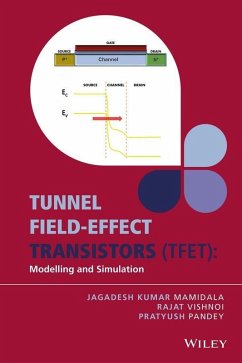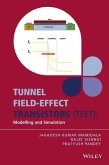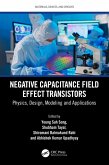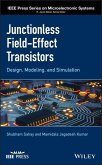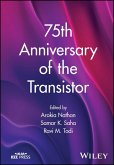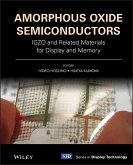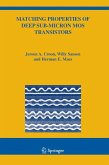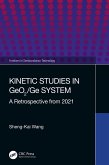Research into Tunneling Field Effect Transistors (TFETs) has developed significantly in recent times, indicating their significance in low power integrated circuits. This book describes the qualitative and quantitative fundamental concepts of TFET functioning, the essential components of the problem of modelling the TFET, and outlines the most commonly used mathematical approaches for the same in a lucid language. Divided into eight chapters, the topics covered include: Quantum Mechanics, Basics of Tunneling, The Tunnel FET, Drain current modelling of Tunnel FET: The task and its challenges, Modeling the Surface Potential in TFETs, Modelling the Drain Current, and Device simulation using Technology Computer Aided Design (TCAD). The information is well organized, describing different phenomena in the TFETs using simple and logical explanations. Key features: * Enables readers to understand the basic concepts of TFET functioning and modelling in order to read, understand, and critically analyse current research on the topic with ease. * Includes state-of-the-art work on TFETs, attempting to cover all the recent research articles published on the subject. * Discusses the basic physics behind tunneling, as well as the device physics of the TFETs. * Provides detailed discussion on device simulations along with device physics so as to enable researchers to carry forward their study on TFETs. Primarily targeted at new and practicing researchers and post graduate students, the book would particularly be useful for researchers who are working in the area of compact and analytical modelling of semiconductor devices.
Dieser Download kann aus rechtlichen Gründen nur mit Rechnungsadresse in A, B, BG, CY, CZ, D, DK, EW, E, FIN, F, GR, HR, H, IRL, I, LT, L, LR, M, NL, PL, P, R, S, SLO, SK ausgeliefert werden.

